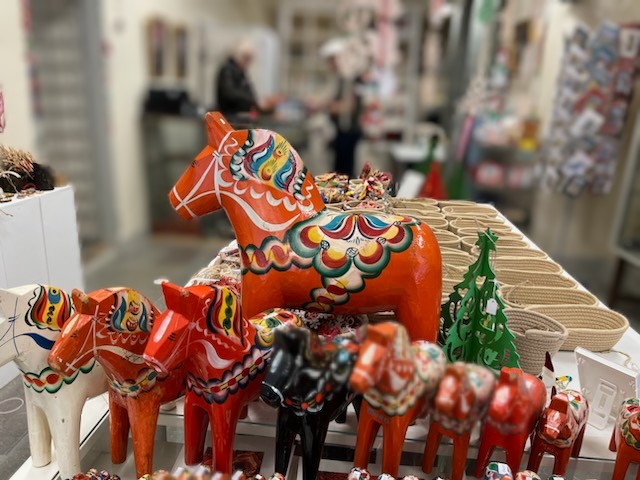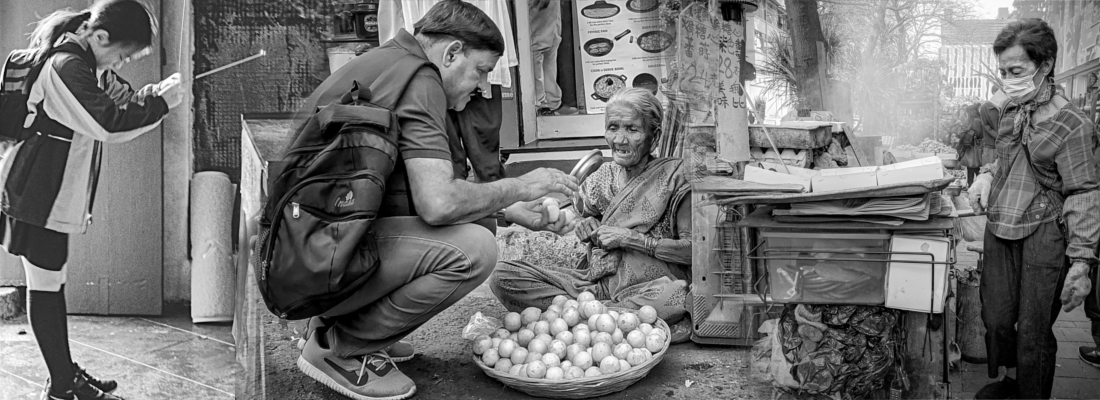This unlikely story is mostly about the immigrant girl, but it started with the immigrant man.
The man was working in a tourist shop in Gamla Stan, the old city of Stockholm, Sweden, which is where I met him. It was late Sunday morning and I was buying gifts.
He was older but not old, a little overweight with white hair, and somewhat indifferent to my presence as I walked in. We did chat, though, as I examined a variety of gift options. I learned that he was an artist. He liked Stockholm. He liked Sweden. What about the future? He was concerned, obviously. Bad things were underway. But his daughter was part of the Sweden Democrats — the right wing nationalist party — and he himself was a big fan of their work. With pride he showed me a key holder he wore bearing the SD logo.
The problem was the immigrants, he said, especially from Afghanistan.
I nodded as though he had taught me something. He spoke accented but understandable English, and I assumed he was from Sweden.
Then he made a phone call in Russian. It turned out he was himself an immigrant, having arrived from Russia many years earlier.
I purchased my gifts and moved on.

The next task was lunch.
I chose a nearby cafe at random and walked in. It was staffed by two teenagers, a boy and a girl, both of whom greeted me enthusiastically. They spoke fantastic English. He was from Stockholm. He liked American TV. He had visited Copenhagen but not New York. He thought Stockholm was a generally happy place, and he liked Sweden.
She was from Afghanistan.
I could hardly believe it, and I told her so. “You’re a long way from home,” I added by way of affirmation.
She agreed with a smile.
Our brief interaction didn’t give me time to ask everything I wanted to know. But I did learn that she was 14 years old (legally able to do light work in Sweden), spoke four languages (including Swedish and English), had been in Sweden for two years (since the most recent rise of the Taliban in Afghanistan), and that she missed home “very much.”

How, I wondered, could anyone object to this hardworking, multilingual, friendly teenager? What would the immigrant man from the tourist shop say? What about his Social Democrat daughter? That party’s platform complains that “Mass immigration to Sweden … has changed Sweden for the worse.” Did they mean this girl? Would they prefer to have turned her back? Would they expel her?
I think Sweden should be immensely proud of giving this girl a future, and immensely grateful to have such an industrious and capable new member of its society. But, apparently, Swedes in large and growing numbers disagree.
There in front of me was the whole immigration debate in a nutshell: a girl fleeing a country where she was valued less even than the clothes she wore, a new country that took her in, and a local population increasingly fed up with immigrants.
Of course I know that that’s not really the whole debate.
I understand that immigrants bring foreign customs and behaviors that locals may not like. (And in yet another unexpected juxtaposition of events, that very evening I saw a clear example: a raucous celebration of Turkey’s Erdogan taking place in downtown Stockholm.) I understand that Swedes like their Scandinavian way of life — and, having been there, I can understand why. I understand their reluctance to compromise. I certainly understand that if Sweden becomes like Taliban-ruled Afghanistan then it will no longer be a suitable home for Swedes or for foreigners.
And this isn’t just about Sweden. It’s about every country whose bounty and success attract people seeking a better life.
But mostly it’s about this immigrant girl, and myriad more like her. What are we who are successful willing to do for her? Or, perhaps, what are we unwilling to give up even if it means her brutal death?











